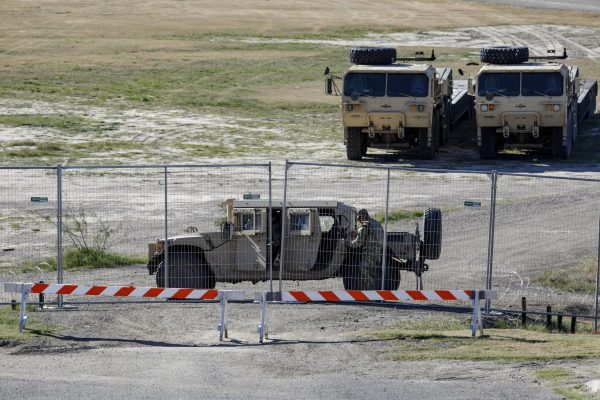President Jimmy Carter: in review
A glance into the life of the oldest living and longest lived United States President
Approximately 41 years ago, Jimmy Carter’s presidential reign ended. Since then, Carter has not been caught slacking on his non-obligated duties as a productive member of society.
James Earl Carter, Jr. was born October 1, 1924, and in his early life, he grew up in a farming community in Georgia. In 1927, his parents moved to Archery, a mostly African-American community, thereby beginning his exposure to divisions of race and class in the segregated, Depression-era South. Many individuals who were close to Carter at the time would say that his cherished friendships and upbringing in this community began his public life as a Southern Democrat in an era of white supremacy.
Many years later, Jimmy and Rosalyn Carter married in 1946 and he left the Archery-Plains area to become a naval officer. It was not until his father passed suddenly that he returned to his hometown in Georgia to take over his father’s farm. Soonthereafter, he grew the family farm operation into a remarkable peanut agribusiness.
A little more than a decade later, Carter made his opposition to racial segregation clear to the public, and fiercely supported the advancing civil rights movement. Through his deep-seated stance about the civil rights movement, Carter became a well known activist within the Democratic Party, and between the years 1963 to 1967, he served in the Georgia State Senate. Not even half a decade later, he was elected governor of Georgia.
Carter’s path to the presidency is one that defied Washington expectations at the time. He was a little known Georgia governor that put his bid in for the President of the United States (POTUS). Many news articles at that time referenced, “Jimmy Who?” discounting the dark horse candidate. Nevertheless, during the 1976 United States presidential election in November of 1976, Carter emerged victorious. Democrat Jimmy Carter of Georgia defeated the reigning occupant of the White House, Republican President Gerald Ford from Michigan, by a slim victory of 297 electoral votes to Ford’s 240.
“Though he was little known at the national level, Carter won the Democratic nomination through tireless and systematic campaigning,” the Learnodo Newtonic website explained.
As the 39th President of the United States, he faced many serious challenges within the U.S. and internationally. He faced countless external resolutions, all the while his domestic policy was aimed at resolving issues relating to education, the environment, and America’s energy policy. He battled inflation, improved industrial growth, and he established both the U.S. Department of Energy and the U.S. Department of Education.
During his presidency, Carter also played a crucial role in the negotiation of a peace treaty between Egypt and Israel. Carter was also able to improve relations with Panama by following his moral compass and returning control of Panama Canal back under their guardianship.
Carter was a champion of human rights, environmentalism, peace, and a firm believer in following his ethical and moral beliefs, which made him a negotiating asset. However, all good things come to an end, and Carter lost his bid for re-election in 1980 to future POTUS Ronald Reagan.
Carter devoted his post-Presidency to humanitarian causes such as building homes, eradicating diseases, and monitoring elections. One need only take a look at his official website, The Carter Center, to see the matters he holds dear to his heart. The organization has made it clear that the center is non-partisan and seeks collaboration with any and all levels of government in many countries. Carter’s website portrays his important agendas for “Waging Peace. Fighting Disease. Building Hope.”
The Carter Center organization’s mission is founded in partnership with Emory University for a fundamental commitment to human rights and the alleviation of human suffering by resolving conflicts, enhancing freedom and democracy, while also concentrating on improving health. A quick review of the Carter Center website will elaborate further on former President Carter and his wife’s notion that there are direct correlations with regards to the culture of human rights, freedom, democracy, and permanent peace.
His election monitoring recognition has made his organization a pioneer in the field by reviewing over 113 elections in 39 countries—all to ensure Democratic elections for the freedom of people who have not always enjoyed that right. His review of elections began in the 1980’s when the Cold War was coming to a close and democratization was spreading internationally.
“At the Carter Center, we believe all people are entitled to basic human rights. When people have these rights, they feel a sense of justice and self-worth. These are the seeds of peace,” Former President Jimmy Carter urged.
Also in aid of peace, his conglomerate promotes citizen participation in policy-making and establishing government institutions that hold up the rule of law, justice, access, and transparency by the government with which they are building.
The Center’s focus on health initiatives concentrates on eradicating and eliminating diseases that are preventable by using education and low costs methods as well.
“We believe access to healthcare is a human right, especially among the poor afflicted with disease who are forgotten, ignored, and often without hope. Just to know that someone cares about them not only can ease their physical pain, but also remove an element of alienation and anger that can lead to hatred and violence,” Carter said.
The preventable diseases the Carter Center concentrates on are: guinea worm, river blindness, trachoma, schistosomiasis, lymphatic filariasis, and malaria in hispaniola. Maternal and child health are also concentrations for improvement in Sudan and Nigeria, as well as mental health care concerns globally.
Carter also faithfully promotes his partnership with Habitat for Humanity – a global nonprofit housing organization – without fail.
“Throughout their involvement with the Jimmy & Rosalynn Carter Work Project, former U.S. President Jimmy Carter and former first lady Rosalynn Carter have been tireless advocates, active fundraisers and some of our best hands-on construction volunteers. The Carters demonstrated their commitment to social justice and basic human rights over and over again during their time in the White House. Their resolve has only persisted since moving on, most notably through the Carter Center in Atlanta. They have also worked on numerous Habitat builds both in the United States and around the world alongside passionate volunteers,” the Habitat for Humanity website declares.
For his countless efforts, in 2002 The Nobel Peace Prize was awarded to Jimmy Carter, “for his decades of untiring effort to find peaceful solutions to international conflicts, to advance democracy and human rights, and to promote economic and social development,” The Nobel Peace Prize website reported.
Notably, his devoted work continued for another 20 years succeeding this Nobel Prize, and Carter is one of only four U.S. Presidents to be awarded the Prize within itself. He had been nominated for the occasion four other times and almost won for his 1978 work in role with the Camp David accords. However, he is the only U.S. President to win the Prize after leaving office.
Carter is the longest living president in American history and was still active until very recently at the age of 98. Throughout the course of his well-lived life, Carter has survived cancer as well as a detrimental brain injury.
His cancer journey began later in life when he turned 89 with a mass removal in his liver. This later revealed as melanoma, then it was revealed that there were spots that had spread onto his brain. With small fan fare, he later revealed that he had beat the cancer while going back to work with Habitat for Humanity. He would work proudly and tirelessly for Habitat for Humanity, even succumbing to dehydration while working on a home in Kansas on one occasion.
Many news agencies are, of course, covering the former POTUS and his health care journey and his relative thoughts on aging. Carter once told People magazine when he was 95 years of age that he had never expected to be alive for as long as he has.
Through his family and his center, he has revealed that he has decided to spend his remaining time at home with his family and receive hospice care instead of additional medical intervention.
For more inquiries about Jimmy Carter, his legacy, and The Carter Center, please visit https://www.cartercenter.org/.




